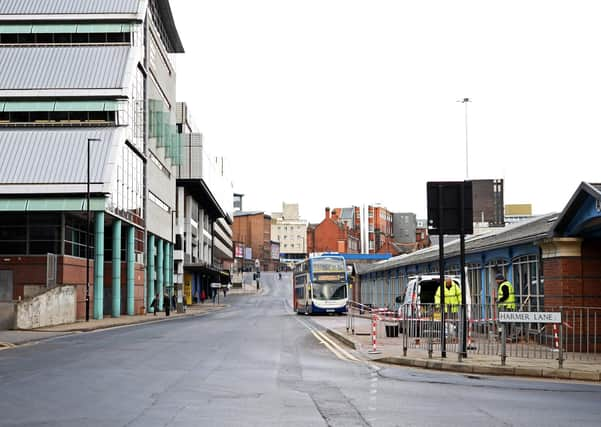South Yorkshire could follow Manchester’s bus franchising plan: Dan Jarvis


With Covid finally receding, we’re acting on that ambition. We’ve just extended sharply discounted 80p fares all the way up to age 21 for a year – a significant intervention both to help revive ridership, and to help young adults who are facing enormous challenges.
Now we’re making another £3.2m down-payment on reform – to buy our first electric buses, upgrade bus stops, and expand real-time information. It’s not enough, but it’s a start.
Advertisement
Hide AdAdvertisement
Hide AdFor the longer term, we’re urgently working on how to implement lessons from the comprehensive review my colleague Clive Betts led last year, looking at fares, services, integration with other transport, and conversion to zero-emissions vehicles – all the key elements we have to fix. It’s the practical detail of what good looks like, and how to get there. That includes ownership. Greater Manchester’s commitment to franchising is a major shot in the arm for reform.
My bottom line is we need a structure that lets us build the service we need. Franchising will be among the options.
This may seem an odd time for ambition. Even before Covid, our system was in managed decline. Over the past decade, passenger journeys fell 21 per cent. Various factors are behind this, but they include major issues around reliability and frequency, complex ticketing, and poor integration between services. Underlying it all is a 48 per cent cut in funding since the Conservatives took power in 2010.
Funding for buses in London is £76 per head: in Sheffield it is £5. It’s unacceptable.
Advertisement
Hide AdAdvertisement
Hide AdCovid has supercharged these challenges. Essential services were heroically maintained, but ridership inevitably collapsed: the system is only surviving with emergency subsidies.
Based on current trends, passenger numbers will drop 20 per cent, reducing revenue around £24m a year.
That crisis must indeed be priority one. Above all, we need a gradual transition as we exit lockdown, and to actively encourage people back onto the buses. The government must recognise the need for continued support – for our Supertram and rail networks as well as our buses.
But beyond that we have a choice. I am for ambition, for one reason above all. The alternative is ever greater dependency on the car – and that means communities that are less liveable, more afflicted by air pollution and congestion, and where the disadvantaged are left behind.
Advertisement
Hide Ad